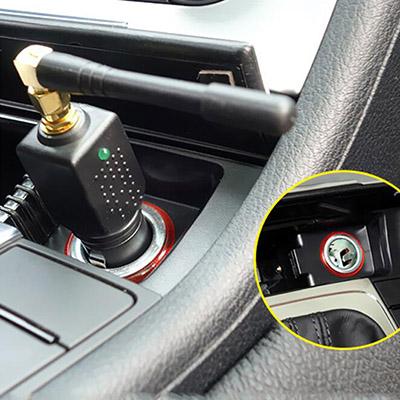MIL and Aviation Review, June 28, 2016. How much do you trust and rely on your personal GPS satellite navigator to know where or how to reach your destination? GPS interference may occur.
If you rely heavily on GPS, you are likely to lose trust and everyone will find a friend’s house, restaurant or the latest fashion bar.
Experts began to study how the Global Positioning System (GPS) satellite navigation network resists the expected or accidental effects of electronic interference. The answer that appears is not very good.
RF and microwave experts at Spirent Communications plc in Crawley, UK, have studied the electronic interference of GPS signals in the past year and have obtained amazing results.
Guy Buensel, a PNT technology expert at the multinational telecommunications test and measurement company Spirent, said: "We searched for GPS failures around the world and found many interference events-and some deliberate events."
If the reliability of car GPS systems alone is questionable, what impact will this have on commercial air traffic control, radar systems, intelligent ammunition management, or truck and cargo fleet management?
As for Spirent's conclusion after a year of GPS testing, satellite navigation signals are everywhere subject to various interferences, and these interferences may damage, weaken or eliminate GPS signals in speckle transient events.
These temporary GPS failures can cause more problems than you think. This is because terrestrial GPS users rely on service timing as much as they rely on location information. GPS satellites have precise atomic clocks that can provide unprecedented precision timekeeping.
Buensel said: "We have seen examples of broadcasting systems or telecommunications systems where time synchronization may be lost." "In digital broadcasting, this means that you may lose the entire segment of the broadcast."
In another incident, measurements were taken at Boston Logan Airport in Massachusetts, where the ground approach system recorded temporary anomalies caused by simple electronic jammers and cigarette lighters in vehicles near the airport.

With the help of these miniature GPS jammer that cost less than $50, users can create RF interference bubbles around the vehicle, thereby disrupting the work of tracking the vehicle with GPS signals. The width of the bubble can reach a quarter of a mile. Problems arise when the vehicle passes through airports or other facilities that rely on GPS positioning and time.
"The GPS signal is weak and easily interrupted," Buensel emphasized. "We started monitoring GPS-L1 interference in May 2015. We placed the receiver on the roof of the UK. I think we are lucky to see the interference. Hundreds of incidents were recorded within a month. We were interfered Surrounded by "location" is a lot of electrical switchgear. There are many accidental failures, but we have seen some deliberate failures. "
Will deliberate and accidental GPS interference cause airplanes to fall from the sky or trucks to hit buildings? Buensel said this is unlikely because most GPS devices that are critical to business and life have enough backups to handle intermittent outages.
Wine experts are working hard to raise awareness of the potential interference from GPS devices in order to prepare for the inevitable users. Once users know they are facing traffic jams, they can take steps to reduce the impact.
"GPS interference depends largely on the line of sight," Buensel explained. "Knowing that there is GPS interference nearby is useful, so you can move the antenna." He said that other solutions might include a holding system like an oscillator or a supplementary system like Loran.
Military system designers can often use techniques such as beam steering or antenna nulling to prevent GPS signal blocking. "The solution depends on what you want to do and the value that precise positioning brings to you," Buensel said.
